Filter by
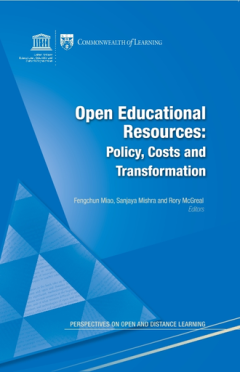
Open Educational Resources: Policy, Costs and Transformation
The Open Educational Resources (OER) movement has grown substantially since the term was first adopted at UNESCO’s 2002 Forum on the Impact of Open Courseware for Higher Education in Developing Countries (UNESCO, 2002). Since then, there has been a significant increase in the development, use and sharing of OER as more and more governments and institutions come to realise their value. OER can…
- Edition
- -
- ISBN/ISSN
- -
- Collation
- xv, 231p : ill.
- Series Title
- -
- Call Number
- 681.14 OPE
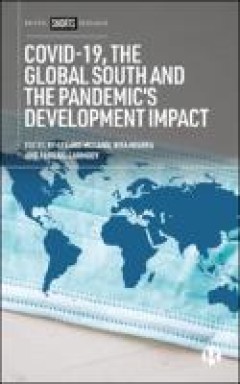
COVID-19, The Global South And The Pandemic’s Development Impact
EPDF and EPUB available Open Access under CC-BY-NC-ND licence. This book examines the unique implications of the pandemic in the Global South. With international contributors from a variety of disciplines, it investigates the pandemic’s effects on development, medicine, gender (in)equality and human rights among other issues. The book’s assessment offers a discourse on the ways in which the…
- Edition
- -
- ISBN/ISSN
- 9781529225679
- Collation
- -
- Series Title
- -
- Call Number
- -
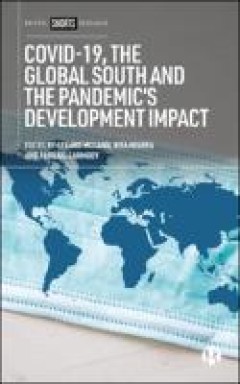
COVID-19, THE GLOBAL SOUTH AND THE PANDEMICS DEVELOPMENT IMPACT
EPDF and EPUB available Open Access under CC-BY-NC-ND licence. This book examines the unique implications of the pandemic in the Global South. With international contributors from a variety of disciplines, it investigates the pandemic’s effects on development, medicine, gender (in)equality and human rights among other issues. The book’s assessment offers a discourse on the ways in which the…
- Edition
- -
- ISBN/ISSN
- 9781529225655
- Collation
- xv, 224p.
- Series Title
- -
- Call Number
- 362.1962414091724 COV m

Language and the making of modern India : nationalism and the vernacular in c…
Through an examination of the creation of the first linguistically organized province in India, Odisha, Pritipuspa Mishra explores the ways regional languages came to serve as the most acceptable registers of difference in post-colonial India. She argues that rather than disrupting the rise and spread of all-India nationalism, regional linguistic nationalism enabled and deepened the reach of…
- Edition
- -
- ISBN/ISSN
- 9781108591263
- Collation
- 247p. ; ill.
- Series Title
- -
- Call Number
- 409.54133 PRI l
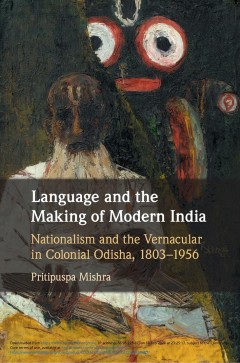
Language and the making of modern India : nationalism and the vernacular in c…
Through an examination of the creation of the first linguistically organized province in India, Odisha, Pritipuspa Mishra explores the ways regional languages came to serve as the most acceptable registers of difference in post-colonial India. She argues that rather than disrupting the rise and spread of All-India nationalism, regional linguistic nationalism enabled and deepened the reach of na…
- Edition
- -
- ISBN/ISSN
- 9781108591263
- Collation
- x, 247p. : ill.
- Series Title
- -
- Call Number
- 409.54133 MIS l
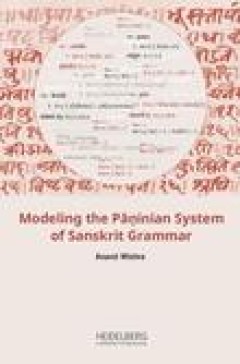
Modeling the Pāṇinian system of Sanskrit grammar
The present work is a study of the Aṣṭādhyāyī of Pāṇini from a new perspective. It attempts to explore the Pāṇinian system of Sanskrit grammar from a formal point of view and investigate the possibilities of representing it in a logical, explicit and consistent manner. It puts forward an appropriate framework for such a representation. Differing from the formulation of Aṣṭādhy…
- Edition
- -
- ISBN/ISSN
- 9783946054535
- Collation
- 268 p.; 22 cm.
- Series Title
- -
- Call Number
- 499.2345 MIS m
 Computer Science, Information & General Works
Computer Science, Information & General Works  Philosophy & Psychology
Philosophy & Psychology  Religion
Religion  Social Sciences
Social Sciences  Language
Language  Pure Science
Pure Science  Applied Sciences
Applied Sciences  Art & Recreation
Art & Recreation  Literature
Literature  History & Geography
History & Geography